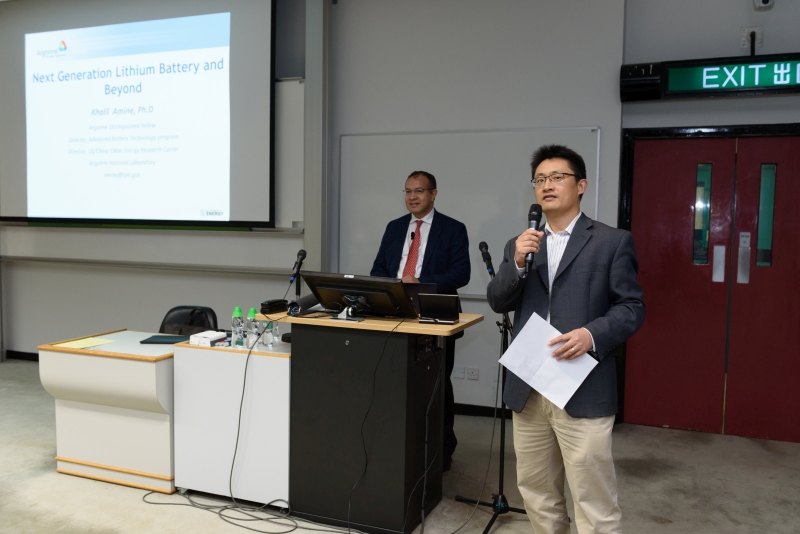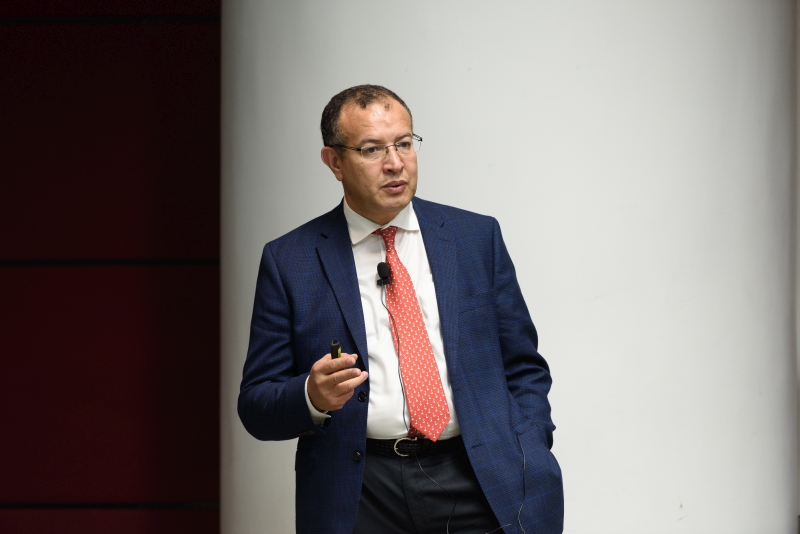Next Generation Rechargeable Lithium Batteries and Beyond
Abstract
To enable 40 miles Plug-in Hybrid Electric Vehicles (PHEVs) and long electric drive range Electric Vehicles (EVs), there is a need of developing advanced battery systems that offer at least 250 to 300 wh/kg energy density. The most significant technical barrier to developing commercially viable PHEVs is the energy storage system. The challenge is to develop batteries that are able to perform the requirements imposed by a PHEV system and yet meeting market expectations in terms of cost and battery life. In this case, the PHEV battery will experience both deep discharge, like an electric vehicle, and shallow cycling necessary to maintain the battery for power assist in charge sustaining Hybrid Electric Vehicle (HEV) mode. Conventional lithium-ion batteries based on metal oxides and graphite have made significant progress in recent years for HEV applications. However, durability with the PHEV duty cycle and the ultimate cost and safety of the technology remain key challenges. To achieve a very high all electric drive range, a new battery system with advanced high capacity cathode materials and stabilized high capacity anode is needed. In this lecture, the speaker will disclose several strategies to increase significantly the energy density of lithium battery through the development of high energy cathode material coupled with high voltage electrolyte. He will also describe some new approaches of improving the life cycle of Si/carbon composite anode and addressing the poor initial efficiency of this system by developing a novel prelithiation concept. He will conclude by showing a new superoxide air battery and a novel lithium air closed system as well as a novel Sulfur selenium based system that overcome both conductivity, swelling and dissolution issues known to sulfur system.
About the speaker
Dr. Khalil Amine obtained his MA in Chemistry in 1986 and PhD in Materials Science in 1989 from the University of Bordeaux in France. Prior to joining the Argonne National Laboratory in 1998, he led research projects in the research arms of public and private organizations and universities, including the Japan Storage Battery Company, the Osaka National Research Institute and Kyoto University. He is currently a Senior Materials Scientist and an Argonne Distinguished Fellow at Argonne. Since June 2015, he has become the Deputy Director of the Clean Vehicles Consortium in the US-China Clean Energy Research Center.
Dr. Amine is responsible for directing the research and development of advanced materials and battery systems for Hybrid Electric Vehicles (HEV), Plug-in Hybrid Electric Vehicle (PHEV), Electric Vehicles (EV), satellite, military and medical applications at Argonne. He is an advisor to the US National Research Council on battery-related technologies and an active member of the Electrochemical Society (ECS), the Material Research Society and the American Ceramic Society. He also serves as the Chair of the 16th International Meeting of Lithium Batteries (IMLB) and the Editor of the Nano-Energy.
Dr. Amine is a five-time recipient of the R&D 100 Award, which is considered as “the Oscar for technology and innovation”. From 1998 to 2008, he was the most cited scientist globally in the field of battery technology. He was given the US Department of Energy Outstanding Scientist Award (2013), the ECS Battery Technology Award (2010) and the International Battery Association Award (2010). A prolific researcher, he is responsible for more than 400 publications in addition to over 160 patents.











